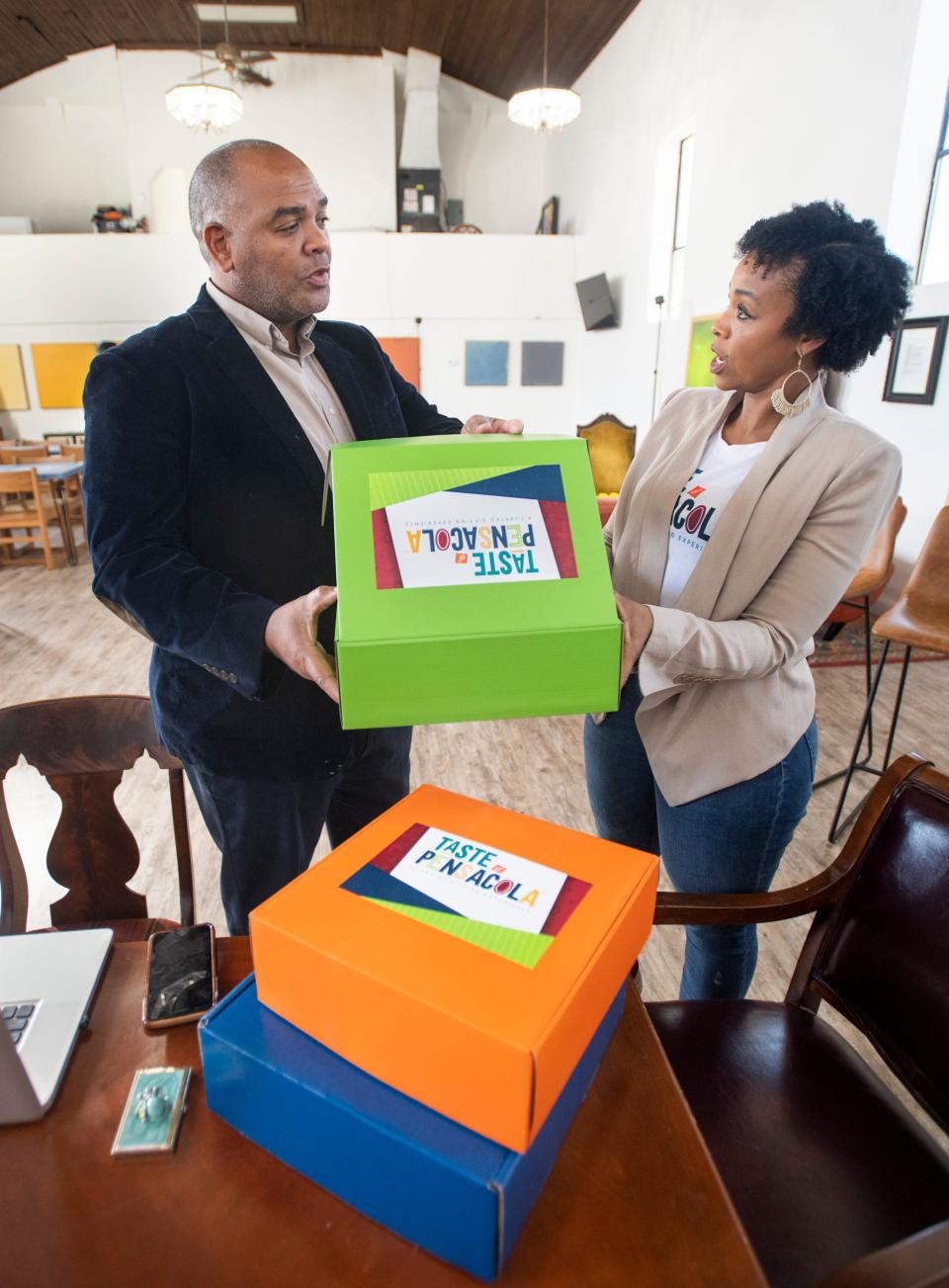StartUps on the Blocks helping Black and brown entrepreneurs learn basics of startups
Carlos Kyles grew up in the small town of Century and was bullied frequently in school. He would be called names, cursed at, and people regularly tried to physically hurt him.
Kyles' bullying made him develop anger issues and depression but he found help through therapy. Now he wants to do the same for others by creating his own startup company to help those who have been bullied by finding alternative ways to heal through his startup Polisal.
“I came up with the company because I wanted to find creative ways to share my story and to help people heal and grow from bullying,” Kyles said.
The problem for people like Kyles, who is Black, and many Black and brown entrepreneurs, according to Lloyd Reshard, is they don’t know about the resources and ways to get money to help their startups flourish.

That is where StartUps on the Blocks comes in.
StartUps was started by the Kukua Institute in August to help aspiring Black and brown entrepreneurs tap into resources, build connections, and find mentorship to turn their ideas into reality.
There are weekly networking events with budding and successful startup founders to build networking within the entrepreneurial ecosystem. Participants are given free access to portfolio companies like StartUp Rocket, which helps track their progress, mentoring with local entrepreneurs, and a weekly newsletter with opportunities to apply for pitch competitions with award money.
Reshard, chairman of the board at the Kukua Institute, has spent an enormous amount of time trying to build his own startup, Cognitive Big Data System. He did not know the language or how to really get started until he went to pitching competitions himself and learned about the “entrepreneurial ecosystem.”
► More local business news:'When Queens Link Up' helps build community for Black women entrepreneurs
► How do we grow Pensacola businesses by 2030? With a holistic, community-based approach
“The startup is not based on going out and getting loans, it's actually getting traction with potential customers,” Reshard said. “And taking advantage of the programs that are in the ecosystem to actually move forward.”
The entrepreneurial ecosystem helps with gaining leverage for an entrepreneur's idea of their startup, which is finding a model to build revenue. In this ecosystem, established entrepreneurs and companies help upcoming entrepreneurs work through every stage of the life cycle of a startup, particularly, the idea stage before the company is formed.
Entrepreneurs like Kyles who is still in the development stages of his idea have seen how all of these resources have helped him with developing his startup.
“It gave me a better understanding of how to work on my idea or how to polish it up and so I feel more confident with my pitches,” Kyles said. “You have to think outside the box and don't even see a box. In other words, I can't have limited thinking. I got to expand my thinking and realize that I can't just think about one particular group of people, I have to be able to market to all types of different people.”
Want to stay up to date on the latest news? Click here to subscribe to pnj.com.
Another entrepreneur in the program is Quinn Breaux, who has his startup called The Know.
The Know is an app that he believes will help the entertainment business become more “streamlined and efficient.” Many artists who are becoming independent are not used to corporations assigning people such as managers or producers to them. This is where The Know will come in to help artists find managers or producers, book events, and help with payment transactions.
He was introduced to StartUps on the Block from Reshard’s wife, Robin, who told Breaux to meet with Lloyd about the program. After being involved in the program for a while he has seen how it has helped him ask the right questions and learn how the ecosystem works.
“Being involved, you get exposed to everything so then you can ask better questions," Breaux said. “Sometimes the issue is not necessarily the problem, but the question that you ask to solve the problem. So by being involved, I was able to ask better questions, and then just being exposed, I was able to then research what I needed to know.”
Reshard hopes in the future to build StartUps on the Blocks even more by providing a more refined accelerator plan within the program. His goal is to help startups with a step-by-step plan on finding a business model, testing out the model, finding solutions to make customers happy, and finally making sure the product fits the market.
Even if the idea is still being created, any potential entrepreneur of color is encouraged to come in and get started, with the goal of helping fill the gap of Black and brown startups in the area.
“You come in where you are and you learn from where you are," Reshard said. “If everybody waited until they became an expert, nobody's gonna ever participate. It's all about learning, it's not about knowing.”
To participate, go to hopin.com and search StartUps on the Block and register for its weekly Thursday networking event.
This article originally appeared on Pensacola News Journal: StartsUps on the Blocks focusing on Black and brown entrepreneurs

